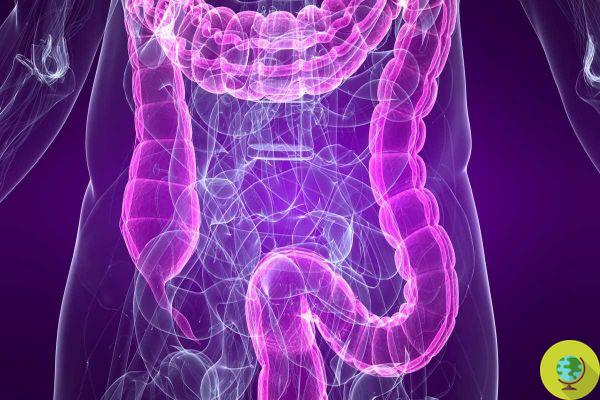
Often used interchangeably, the microbiota and microbiome are critical to the health of the organism. Let's find out what they are specifically
Often used interchangeably, the microbiota and the microbiome are both critical to the health of the organism, but they are not the same.
Microbiome and microbiota are similar but not the same terms, although they are often used incorrectly as synonyms.
Before knowing specifically all the characteristics and differences, it is important to underline that thebalance of the microbiome and the intestinal microbiota they are essential to keep our body healthy.
Index
Cos'è a biome
For scientists, a biome it is an ecosystem of microorganisms invisible to the human eye, and consists mainly of bacteria, but also viruses, archaea and fungi, all of which play a role in maintaining the stability of the environment.
Il microbiome human it comprises trillions of microbes, which can be separated into subsections depending on their location. When we say gut microbiome, we mean all microorganisms and their genes that reside in the colon.
But the microbiome is not just a feature of humans: animals, plants, soils and oceans also have their own. And no matter how you look at it, the intestinal microbiome plays an important role in human health. Home to trillions of microbial cells, it is an essential part of our biology and supports many physiological functions, helps maintain the integrity of our intestinal lining and protects us from various diseases.
Microbiome vs microbiota
Although the terms are used interchangeably, there is a slight difference between microbiome and microbiota.
The term intestinal microbiota describes the different populations of microbes present in the large intestine, including bacteria, archaea and viruses. Some bacteria are beneficial because they perform an essential health function, such as the production of vitamins, others are considered Probiotics when they contribute to several important functions, such as Bifidobacterium and Lactobacillus. Furthermore, in the microbiota there are also small quantities of “negative” microbes, because if they are not controlled by the rest of our microbiota they are able to make us sick; and finally, there are many harmless microbes, that is, those that live in harmony in the intestinal ecosystem.
Il microbiomeinstead, it refers to microorganisms and their genes, while the microbiota refers only to the microbes themselves. In other words, when we define microbiome we are referring to microbes and their genetic material and how they contribute to the health (or not) of the human body.
On the contrary, the intestinal microbiota refers precisely to the microorganisms present in a specific environment by type; this includes bacteria, fungi, viruses, protozoa and archaea, and the diversity of the microbiota varies from person to person. Different bacteria live in different parts of the body, prefer different foods and perform different functions; for example, there is a oral microbiota of the mouth it's a microbiota of the skin which in turn has many sub-categories (armpits, nose, feet, etc.).
Why is the microbiome important?
The trillions of bacteria in the gut have one profound influence on health, metabolism and even disease protection.
When we hear the words microbe, bacterium, or virus, we tend to think of something bad, but not all of these microorganisms cause disease. In fact, for example, we rely on them to perform functions that we may not be able to perform; just think that the bacteria in our intestines they help break down plant fibers that we eat, because our bodies don't produce enough enzymes for this arduous task. In doing so, they transform carbohydrates into beneficial metabolites, such as butyrate and vitamins.
Un microbiota balanced with beneficial bacteria and probiotics it performs many other functions, such as keeping the pH at levels suitable to deter pathogens and keep the intestinal lining healthy.
Follow us on Telegram | Instagram | Facebook | TikTok | Youtube
Could it be interesting for you:
- Tell me what microbiota you have and I'll tell you how much weight you will lose. How Bacteria in Your Gut Affect Weight Loss
- Microbiota of newborns: this is what reduces the intestinal flora in the first year of life
- Thus our gut microbiota unexpectedly accumulates drugs, without us realizing it
- Gut microbes hold the key to reversing brain aging and turning back the biological clock?
- Probiotics: how long after taking lactic ferments do they take effect?


























